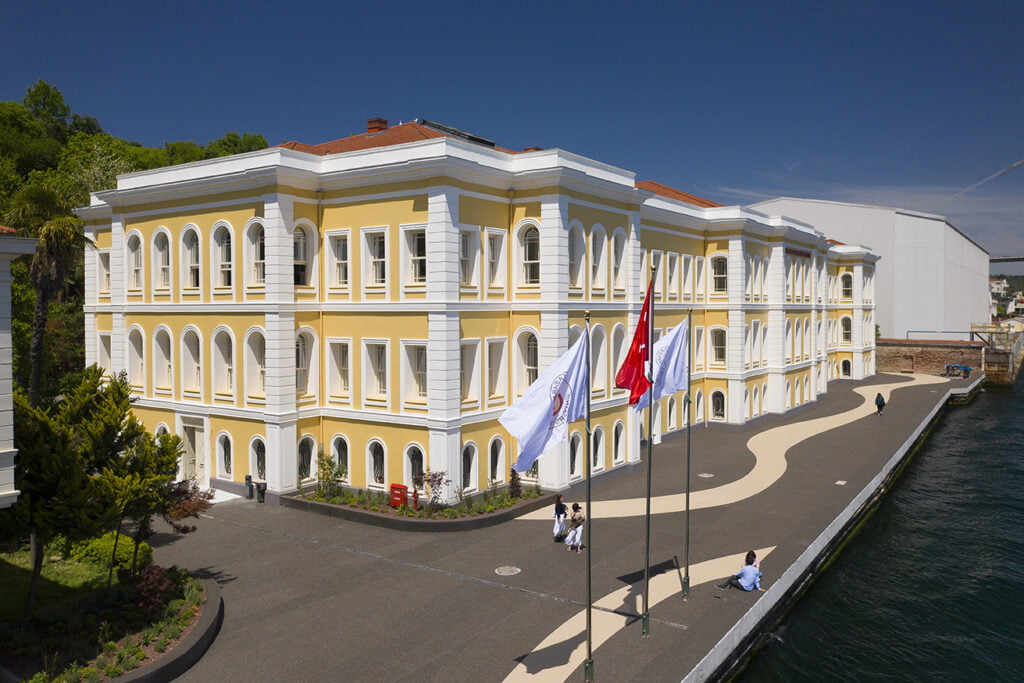Studying abroad can feel like you’ve stepped into a different world, especially when you have chosen a country as vibrant as Turkey. For foreigners in Turkey, delving into the cultural nuances can be both exciting and bewildering. Understanding cultural tips in Turkey is essential if you want your study abroad experience to be smooth and enriching. Turkey’s unique blend of East and West offers its own set of cultural idiosyncrasies. Living in Turkey allows you to experience a tapestry of traditions and customs firsthand, enhancing your educational journey. Turkey education is not only about academic learning; it’s also about embracing this diverse cultural landscape. A little cultural know-how can ease your transition and make your stay more enjoyable. Knowing how to adjust can turn potential obstacles into stepping stones, paving the way for a fulfilling living and learning experience in Turkey.
Navigating Social Norms in Turkish Culture
Navigating social norms is a key step in embracing life abroad. In Turkey, understanding social etiquette can open doors and deepen your connection with locals. Greetings range from handshakes to cheek kisses, depending on familiarity. Whether you’re studying abroad in Turkey or just living in Turkey, knowing when to switch can help avoid awkward situations. Turkish people value warmth and hospitality—don’t be surprised if they invite you for tea. It’s not merely a friendly gesture, but a cherished tradition. While engaging with foreigners in Turkey, you might find their conversations animated and expressive, often intertwined with humor and storytelling. Respect for elders is another cornerstone of Turkish culture, so offering your seat in crowded places is seen as respectful. Turkey education and cultural experiences together provide a rich tapestry of learning. So, these cultural tips in Turkey will serve as your compass, guiding your way through the intricate mosaic of Turkish society.
Understanding the rhythm of daily life is crucial for foreigners in Turkey. Punctuality isn’t always king here; patience is a virtue. Embrace it. Social gatherings often flow with spontaneity, and plans can change rapidly. While living in Turkey, you’ll notice that relationships are the heart of interactions, stronger than clock-watching. In academic settings, this can mean professors may have a flexible approach, but respect and politeness remain constant. During your study abroad in Turkey, observe and adapt; this is the key to fitting in smoothly. Turkey’s cuisine, rich and diverse, often accompanies social interactions, serving as more than just food. It’s a bridge to understanding local culture, a taste of hospitality. Sharing meals is a cultural exchange, and accepting an invitation signifies respect. Turkey education, interwoven with these experiences, offers lessons beyond textbooks. Let these cultural tips in Turkey guide you through both daily encounters and academic pursuits.
To truly integrate, gain an understanding of the nuances in Turkish communication. Conversations are vibrant, filled with gestures that reflect emotion and sincerity. When studying abroad in Turkey, knowing a few Turkish phrases can elevate your experiences and bridge cultural gaps. Eye contact is crucial; it conveys confidence and respect, valued by locals. Navigate this new world by paying attention to body language during conversations, avoiding misunderstandings. As foreigners in Turkey, you’ll find that personal space might differ from what you’re used to. Adapt gently to this dynamic, seeing it as a form of connection rather than intrusion. If invited to someone’s home, removing your shoes is customary—a simple act reflecting respect. Living in Turkey offers diverse insights, with Turkey education extending beyond academia. Embrace these cultural tips in Turkey to foster deeper friendships. Over time, these small gestures will become second nature, enhancing your overall experience.
Essential Language Phrases for Effective Communication
Sure, communication is key to successfully navigating the cultural tapestry of Turkey. For foreigners in Turkey, mastering some basic Turkish phrases can be your golden ticket to unlock smoother interactions and enhance your study abroad Turkey experience. Saying “Merhaba” (Hello) or “Teşekkür Ederim” (Thank you) can transform a stranger into a friend. It’s not just about the words, it’s the warmth and respect these expressions convey. Familiarity with phrases like “Bana yardımcı olabilir misiniz?” (Can you help me?) or “Fiyat ne kadar?” (How much is it?) can bridge gaps and open doors as you embark on living in Turkey. Embracing the local language embodies a spirit of connection and respect, an essential aspect of Turkey education that goes beyond the classroom. Start with small steps, and soon you’ll find yourself communicating more effectively in this vibrant land.
When it comes to cultural tips Turkey has much to offer. Language plays a pivotal role in easing the transition for foreigners in Turkey, elevating their living in Turkey experience. Dive into local slang or use formal expressions like “Nasılsınız?” (How are you?) to gauge the mood and build rapport. Essential phrases tailored for various situations can save the day, whether you’re exploring bustling bazaars or attending Turkey education events. Picture yourself at a bustling street corner, armed with just enough lingo to secure directions and even a smile. Being prepared with language skills isn’t merely helpful; it’s crucial for an enriching study abroad Turkey journey. Embrace these linguistic tools as keys to the rich tapestry that Turkey is, enabling you to move freely and confidently. Language nuances not only enrich your interactions but deepen your understanding of the traditions and customs that make up the heartbeat of Turkey.
To navigate the vibrant cultural landscape of Turkey, mastering essential language phrases is more than a necessity—it’s a passport to a genuine connection. A greeting with “Günaydın” (Good morning) or a polite “Afiyet olsun” (Enjoy your meal) can bring smiles and make you feel at home. For foreigners in Turkey who embrace these cultural tips, the art of communicating boosts your living in Turkey journey. Even simple phrases like “Nereden geliyorsun?” (Where are you from?) can serve as icebreakers, leading to enriching interactions far beyond classroom walls. As you study abroad Turkey, these linguistic skills won’t just help you navigate but will weave you into the tapestry of Turkish society. So, carry these language essentials in your back pocket, ready to forge bonds. Language is the bridge that unlocks the rich storytelling of Turkey education, offering a deeper understanding of its gracious people.
Understanding Etiquette and Customs During Your Stay
Studying abroad in Turkey offers a unique opportunity to immerse yourself in its rich culture, but understanding etiquette and customs is key to making the most of your stay. When you’re living in Turkey, you’ll notice that hospitality is a cornerstone of daily life. It’s common for people to invite you over with genuine warmth. Remember to remove your shoes at the door—a gesture deeply rooted in Turkish customs. Negotiation and haggling, often seen in local markets, reflect the lively trading culture. A respectful bow of the head fits well with greetings; a strong handshake conveys your sincere welcome. While exploring Turkey education, keen observation helps you adapt to unspoken cultural norms. Drinking tea isn’t just about savoring a beverage; it’s a sign of friendship and hospitality. For foreigners in Turkey, these cultural tips make social interactions smooth and enhance your study abroad Turkey adventure.
Understanding etiquette in Turkey is like learning a new language. When meeting someone, be mindful of using their titles to show respect. Family names carry importance, and using them with a suitable title can leave a good impression. In Turkey, sharing meals is a cherished tradition. Being a guest means enjoying delicious meals and never stretching for the bill; the host takes pride in treating you. Punctuality might not be as rigid as in other cultures, so a bit of patience can go a long way. In public transport, offering your seat to the elderly is a gesture that earns nods of approval. Delve into the subtle art of making friends by understanding these customs. For foreigners in Turkey, grasping these nuances enriches your cultural experience. Remember, in the vibrant sea of Turkey’s traditions, every small understanding contributes to your overall study abroad Turkey journey.
Navigating cultural tips in Turkey involves understanding social nuances that enhance your time here. When living in Turkey, showing genuine interest in the language can break barriers and create connections. A simple “Merhaba” (hello) or “Teşekkür ederim” (thank you) in Turkish can endear you to locals. Don’t shy away from joining communal gatherings, as they’re integral to the social fabric. Dining is a shared experience; avoiding taboos like turning down food can deepen friendships. Dress modestly and consider the conservative norms, particularly in traditional areas. Respect for elders is deeply ingrained; a courteous nod or helping hand goes a long way. For foreigners in Turkey, these gestures signify respect for local traditions. While studying abroad Turkey, embracing these etiquette insights transforms ordinary moments into priceless interactions. Each respectful act weaves into the intricate fabric of your Turkey education, making your journey memorable and culturally rich.







